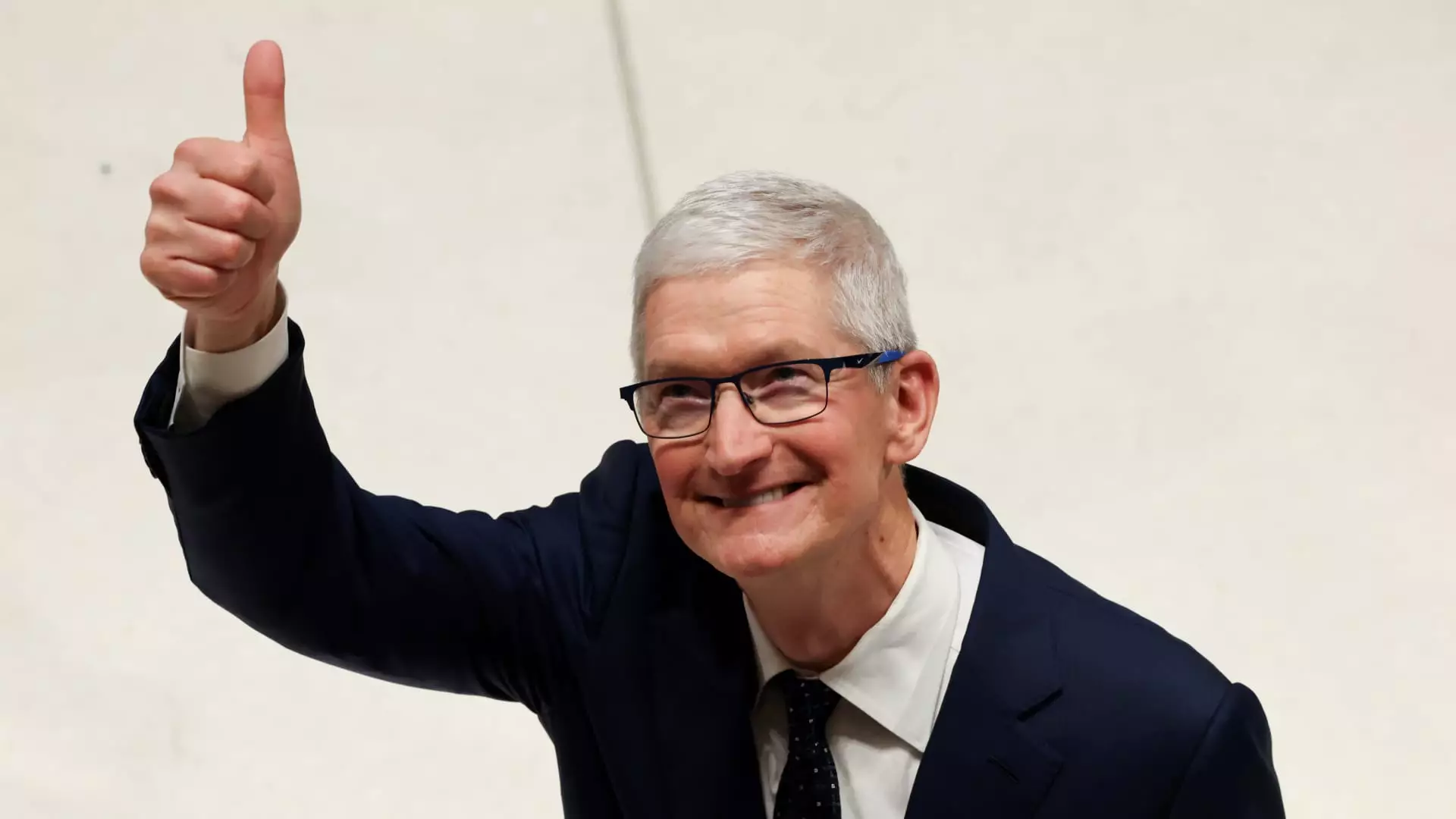In a remarkable ruling that celebrates transparency and open justice, Apple’s legal struggle against the UK government’s push for a “backdoor” into iPhone user data has garnered attention. The Investigatory Powers Tribunal definitively rejected the government’s attempts to shroud the upcoming appeal hearing in secrecy. To prioritize supposed national security, officials argued that information disclosure could become a vulnerability. However, the judges, Rabinder Singh and Jeremy Johnson, countered that a private hearing would gravely undermine the core principle of public justice. Their ruling resonates; it affirms the notion that governmental authority should not trump the necessity for public accountability.
This decision is not simply a legal victory. It underscores a societal shift towards an expectation of transparency in governmental dealings, particularly concerning technology companies and user privacy. By insisting on the public nature of this appeal, the judges have ensured that the intricate balance between security and privacy continues to be a subject of open debate. In an era where data breaches and digital exploitation are rampant, the implications extend far beyond individual cases and into the collective consciousness regarding the importance of transparency in safeguarding democratic values.
End-to-End Encryption: A Double-Edged Sword
The crux of the conflict lies in end-to-end encryption—Apple’s Advanced Data Protection (ADP) system. While encryption is designed to fortify user privacy, critics, including government officials, have asserted that it simultaneously shields criminal activity. They argue that in an ideal world, law enforcement should access tools to dismantle such encryption in the name of public safety.
However, this perspective woefully neglects the broader implications of eroding user privacy rights to cater to law enforcement. History teaches us that dangerous precedents can emerge from seemingly innocuous security measures. A so-called “backdoor” into a secure system can be exploited not just by governments, but also by malicious actors seeking to harm innocent users. Apple’s firm stance against this compromised approach to security reflects a commitment to maintaining users’ rights to privacy, potentially inspiring other tech companies to follow suit.
The Drive for Control in the Digital Age
The demands from the UK government evoke a much larger question of control in the digital era. As societies increasingly depend on technology for daily activities, governments worldwide appear to be struggling with how to balance the need for control—over crime, data, and national security—with the undeniable rights of individuals. The UK, through the Investigatory Powers Act of 2016, is emblematic of this struggle, seeking leverage over tech companies to dilute encryption safeguards.
Apple’s resistance to the government’s requests exemplifies the tech industry’s role as the vanguard of privacy rights. When tech companies yield to governmental pressure to create backdoors, they concede power over user data, allowing for potential misuse and erosion of civil liberties. In this regard, Apple’s refusal should be seen not just as a corporate decision but as a stand for technological integrity and the protection of individual rights against an encroaching state.
The Fallout of Trimming Encryption Standards
The recent ruling and Apple’s withdrawal of its ADP system in the UK signify a concerning trend toward the weakening of encryption as a tool for safeguarding user privacy. This issue is significant as weakened encryption opens pathways for data breaches—exposing personal information that can lead to identity theft, harassment, or other malicious activities. Apple’s lamentation over U.K. customers losing out on robust encryption tools spotlights an unfortunate reality in which punitive government measures directly harm innocent citizens while doing little to address legitimate threats.
Such erosion of encryption might provide a façade of safety for governments, but its repercussions can stifle innovation and make people question the safety of their digital interactions. Organizations must remain vigilant and uphold strong encryption standards to protect users. The irony is that in attempting to protect citizens, governments may inadvertently expose them to greater danger by prioritizing surveillance over genuine security measures.
The Broader Implications for Privacy Rights
In essence, the struggle between Apple and the UK government transcends mere legalities. It speaks volumes about the ongoing contest over privacy rights in the digital age. If government authorities can mandate tech companies to compromise their security features, what’s next? The substantive fear is that the actions of a few will dictate the privacy landscape for many, limiting freedoms and, subsequently, advancements in technology that protect the individual.
Apple’s determination to resist these measures paints a picture of future battles in privacy, privacy that we must safeguard tirelessly. What is at stake is far greater than a single hearing; it embodies principles that will define how we navigate an evolving digital future.

